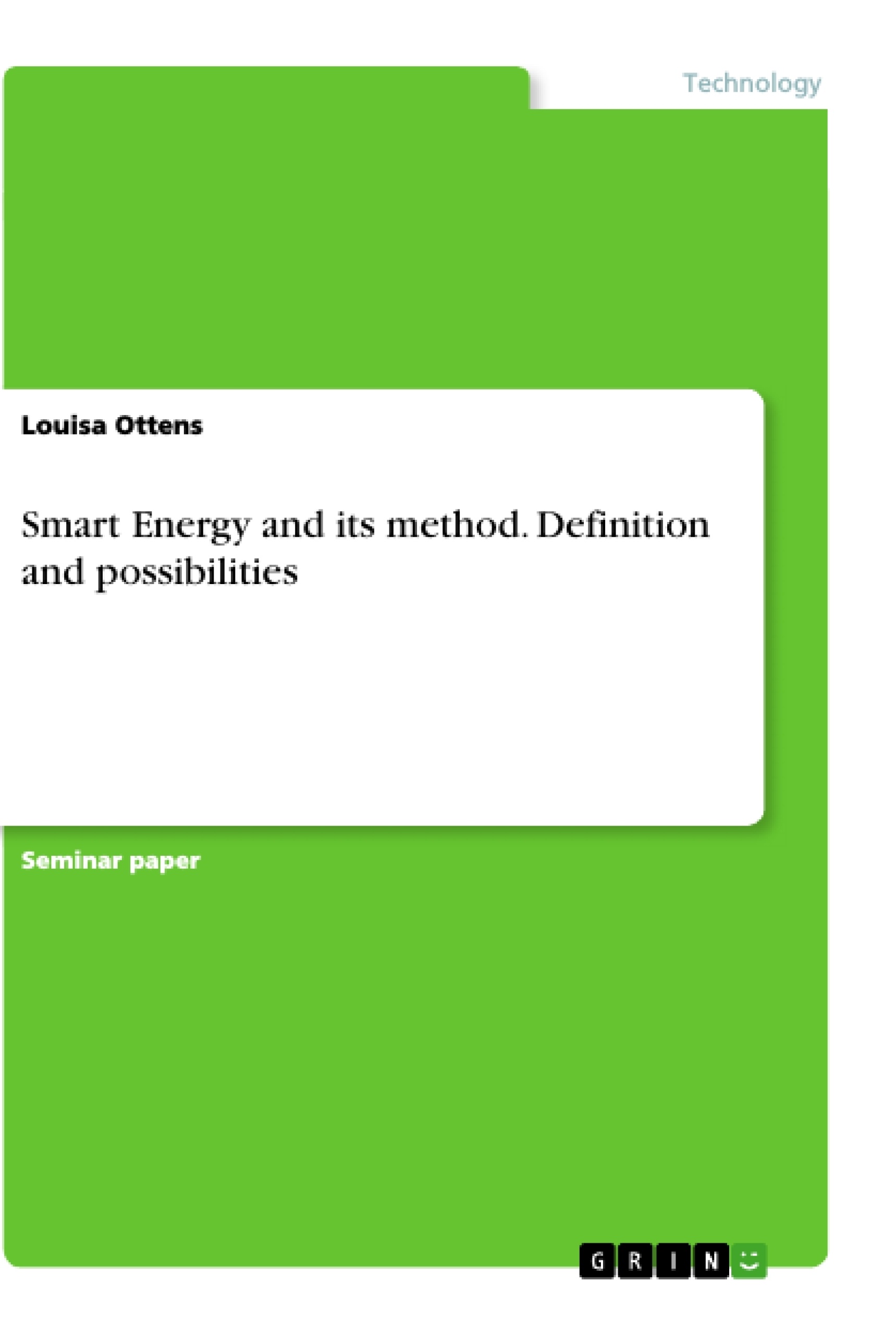The elaboration will deal with the definition of Smart Energy. The focus is on the method that is pursued with Smart Energy and the possibilities that can be achieved with Smart Energy. With the increase of renewable energies, there is an important component of future smart energy. For this reason, the first step is to take a closer look at German energy consumption.
The digital transformation stands as well as the change from today's energy systems for the use of disruptive technologies to increase productivity, value creation and a sustainable environmental policy. Based on this, a range of digital products and services are evolving to smart energy to be integrated into the daily lives of individuals, businesses, and society.
Inhaltsverzeichnis (Table of Contents)
- Introduction
- Energy Consumption
- Renewable Energies
- Smart Method
- Method
- Relation to Smart Energy
- Smart Energy
- Opportunities
Zielsetzung und Themenschwerpunkte (Objectives and Key Themes)
This work aims to define Smart Energy and explore its potential for decarbonizing and decentralizing the power system in Germany. The text examines the current state of energy consumption in Germany, highlighting the growing importance of renewable energy sources. It also presents the SMART method as a framework for strategically implementing Smart Energy solutions.
- Definition and application of Smart Energy
- Decarbonization and decentralization of the power system
- Importance of renewable energy sources
- The SMART method as a strategic framework
- Economic and social impacts of Smart Energy
Zusammenfassung der Kapitel (Chapter Summaries)
- Introduction: This chapter sets the stage for the discussion of Smart Energy, highlighting the digital transformation and the need for sustainable energy solutions. It emphasizes the role of Smart Energy in integrating sustainable practices into daily life.
- Energy Consumption: This chapter analyzes Germany's gross domestic energy consumption, focusing on the increasing reliance on renewable energy sources like wind power, biomass, photovoltaics, and hydropower. It highlights the growing importance of sustainable energy solutions for a greener future.
- Smart Method: This chapter introduces the SMART method as a strategic approach for achieving specific, measurable, achievable, relevant, and time-based goals. The text explores how this method can be applied to Smart Energy initiatives to ensure success.
- Smart Energy: This chapter discusses the implementation of smart technologies in the energy sector, emphasizing the shift from fossil fuels to sustainable energy sources. It explores how smart technologies like digital meters can improve efficiency, reduce consumption, and promote more sustainable practices.
Schlüsselwörter (Keywords)
The key themes and concepts explored in this text include Smart Energy, renewable energy sources, decarbonization, decentralization, energy consumption, sustainable energy systems, the SMART method, digital transformation, and economic and social impacts of energy innovation.
Frequently Asked Questions
What is the definition of Smart Energy in this context?
Smart Energy refers to the integration of digital technologies into energy systems to increase productivity, sustainability, and the use of renewable energy sources.
What is the SMART method mentioned in the paper?
The SMART method is a strategic framework used to set Specific, Measurable, Achievable, Relevant, and Time-based goals for implementing energy solutions.
How does Germany's energy consumption relate to Smart Energy?
The paper analyzes German energy consumption to show the necessity of transitioning from fossil fuels to renewable sources like wind, biomass, and solar through smart technologies.
What are the main opportunities of Smart Energy?
Key opportunities include the decarbonization and decentralization of the power system, improved efficiency through digital meters, and sustainable environmental policy.
What role does digital transformation play in the energy sector?
Digital transformation acts as an enabler for disruptive technologies that help integrate sustainable practices into the daily lives of individuals and businesses.
- Quote paper
- Louisa Ottens (Author), 2022, Smart Energy and its method. Definition and possibilities, Munich, GRIN Verlag, https://www.hausarbeiten.de/document/1190656


